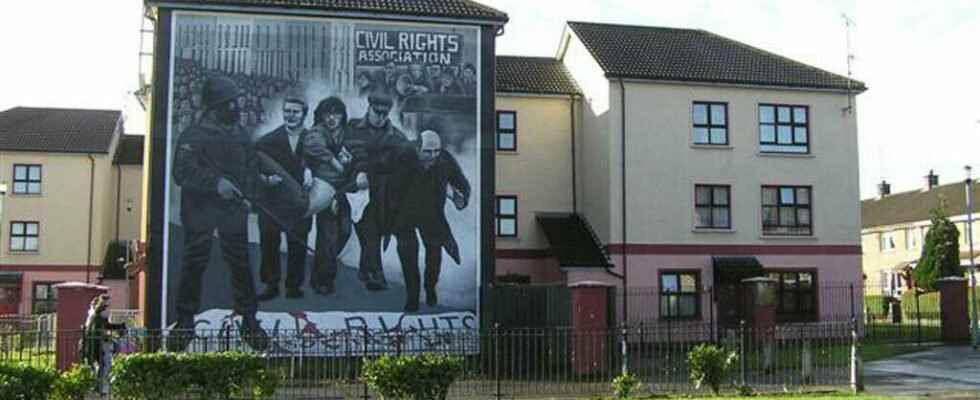Northern Ireland commemorates this weekend one of the bloodiest episodes of the civil war, modestly baptized “The Troubles”, despite its 3,500 dead. On January 30, 1972, 14 Irish civilians were killed by the British Army in Derry after a peaceful march. Despite the Belfast Accords twenty years ago, stability in Northern Ireland remains fragile.
With our special correspondent in Derry, Laura Taouchanov
A great wall encircles the Catholic district of Bogside. Twenty years after the peace, Jane admits, these walls are not quite a thing of the past: There are corners of Derry that I still wouldn’t dare approach! I instantly become that kid again with that little voice telling me I shouldn’t be here. »
No wonder then that the educational system does not allow them to mix. Just take a look at Lucie’s green uniform to know her religion: ” Catholics think Protestants are bad, that they have more money. I would like us to mix schools more so that we can talk to people from different backgrounds. Most Protestants live on the other side of the river so you can’t really meet them. »
The question of reunification still unresolved
At the Derry museum, James reminisces this day which nearly cost him his life. Fifty years later, young people are no longer killed in the street, of course, but the question of reunification has not been resolved: ” Brexit has shown that it is an island. One day, we will have a new Ireland, it is inevitable! With a bit of luck, I will still be around! »
Given all these divisions, it is difficult to create a collective memory. The families of the victims are still waiting for the British soldiers to be tried for war crimes.
►Also to listen: Bloody Sunday: 50 years later, Derry still demands justice
